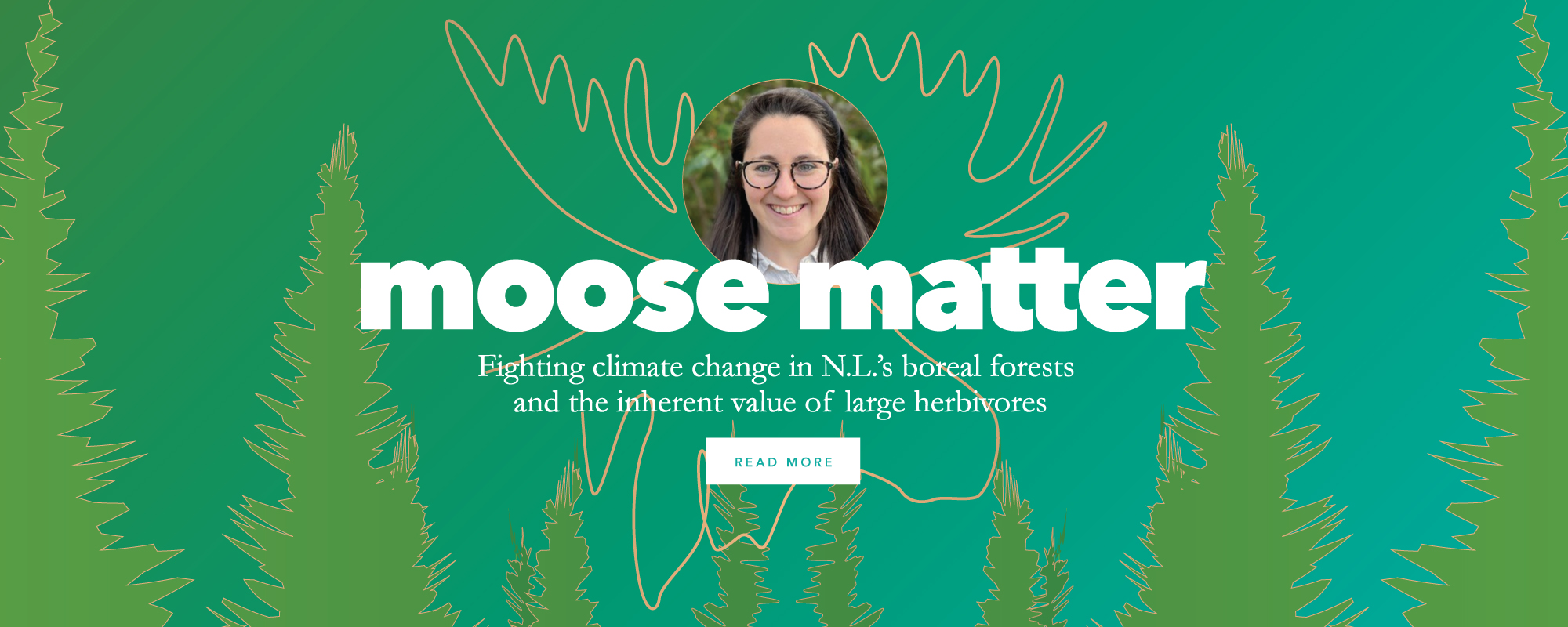More than moose the eye: Is N.L.’s iconic herbivore curbing climate change in our province?

Ref. No.: 36
Climate change and declining biodiversity are two of the most pressing environmental issues of our time, yet they’re always addressed separately.
Memorial University’s Dr. Kristy Ferraro is bridging this gap.
Dr. Ferraro is a recent recipient of the prestigious Banting Post-doctoral Fellowship, which is renowned worldwide for developing the leadership potential of notable new researchers. The fellowship will grant her $140,000 over two years.
Her research project, titled Conserving Large Mammals to Mitigate Climate Change, will explore how the conservation and (re)introduction of animals is an effective tool to combat climate change, as well as how to ethically implement such efforts.
Specifically, she’ll be examining the impact of moose and caribou on the province’s boreal forests and the effect they have on carbon cycling and storage.
Large herbivores, like moose and caribou, affect how carbon is absorbed, stored and released in the forests of Newfoundland and Labrador, which can mitigate climate change.
For example, through nutrient release, such as urine, feces and shedding antlers, large herbivores help improve soil conditions, which helps vegetation grow and store carbon in the soil, which can reduce the amount of greenhouse gases in the atmosphere.
Dr. Ferraro will complete two years of fieldwork on Fogo Island, developing models and collecting data to predict where and how the animals can enhance carbon storage. This interdisciplinary work will also create a philosophical framework for ethical conservation.
“As we rely more and more on animals to contribute to functional ecosystems, I’m eager to not only understand how animals might contribute to natural climate change solutions but also how we can ethically justify and implement the use of animals to solve a climate issue of our making,” she said.
Dr. Ferraro highlights the importance of collaboration, particularly with her new colleagues at Memorial University, including Drs. Shawn Leroux and Eric Vander Wal.
“They are renowned in their field and brilliant scientists — kind and thoughtful advisors. Working with them is a dream,” she said. “I am thrilled to officially be part of the transformative work occurring in the Biology department.”
Receiving the Banting fellowship was a defining milestone for Dr. Ferraro, allowing her to pursue independent research at the intersection of science and philosophy, and the nexus of the climate and biodiversity crises.
Her research will blend empirical data with ethical insights to ensure conservation efforts are both effective and responsible. Her work promises to inspire a new understanding of how animals contribute to climate solutions and how humanity can ethically honour its role in addressing these challenges.